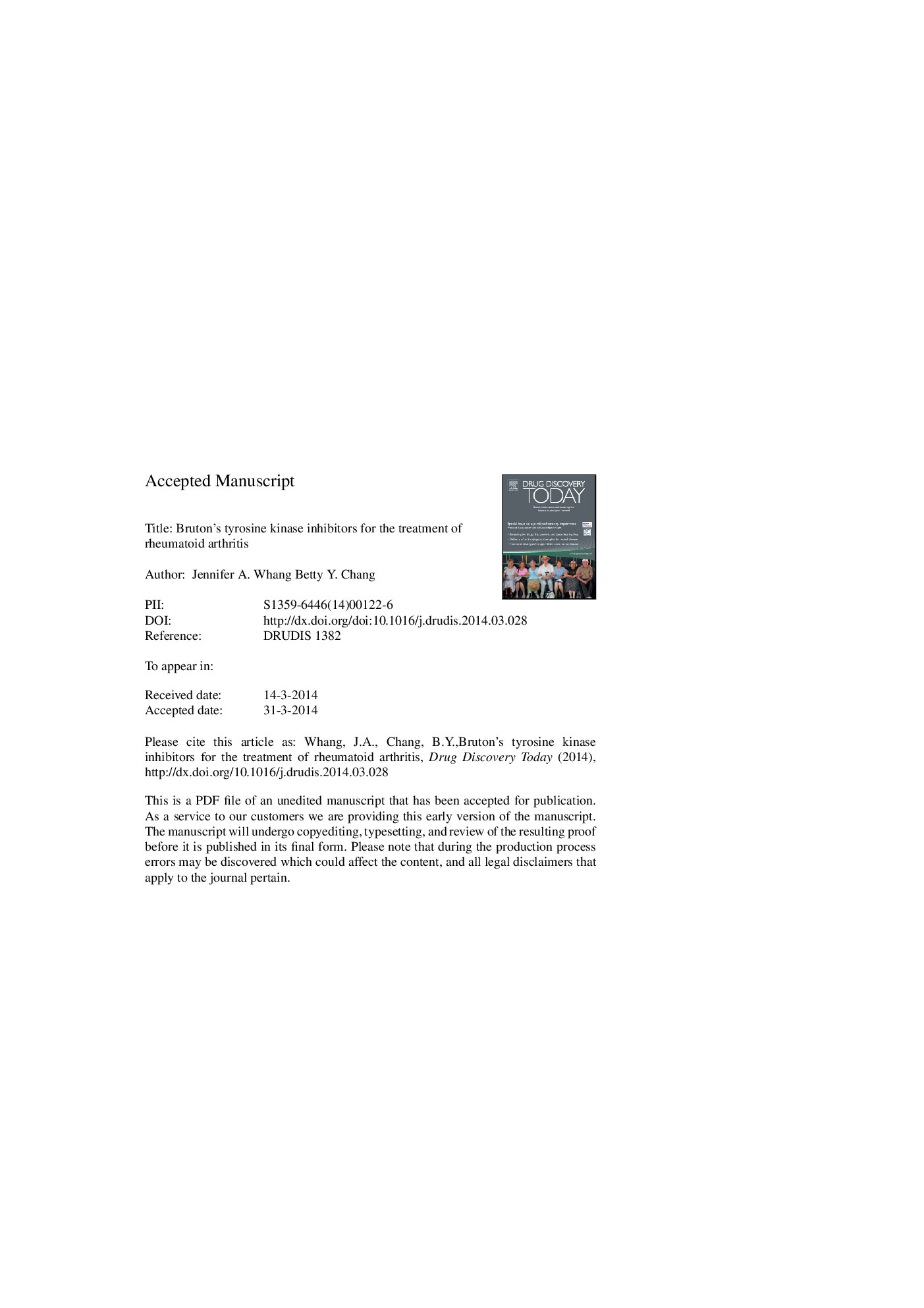| Article ID | Journal | Published Year | Pages | File Type |
|---|---|---|---|---|
| 10885844 | Drug Discovery Today | 2014 | 9 Pages |
Abstract
The function and role of Bruton's tyrosine kinase (BTK) in human B cell development was demonstrated by its association with X-linked agammaglobulinemia (XLA) manifested by a substantial reduction in immunoglobulins and B cells. BTK has a crucial role in pre-B cell receptor (BCR) and BCR signaling during normal B cell development and activation. Aberrant BCR signaling is associated with autoimmune diseases, such as rheumatoid arthritis (RA). In addition, BTK is also expressed in myeloid cell populations, including monocytes, macrophages, neutrophils and mast cells. These innate cells infiltrate the synovial cavity and produce inflammatory cytokines, aggravating arthritic symptoms. In myeloid cell populations, BTK functions downstream of the Fcγ receptors (FcγR) and FcÉ receptors (FcÉR) 1, 2. In the absence of BTK, FcR-mediated functions, such as cytokine production, are impaired. In addition, Xid mice, which have a mutation in BTK, have decreased susceptibility to developing collagen-induced arthritis (CIA) [3]. Given that BTK is involved in multiple signaling pathways downstream of the BCR and FcR, it is an attractive therapeutic target for RA.
Related Topics
Life Sciences
Biochemistry, Genetics and Molecular Biology
Biotechnology
Authors
Jennifer A. Whang, Betty Y. Chang,
